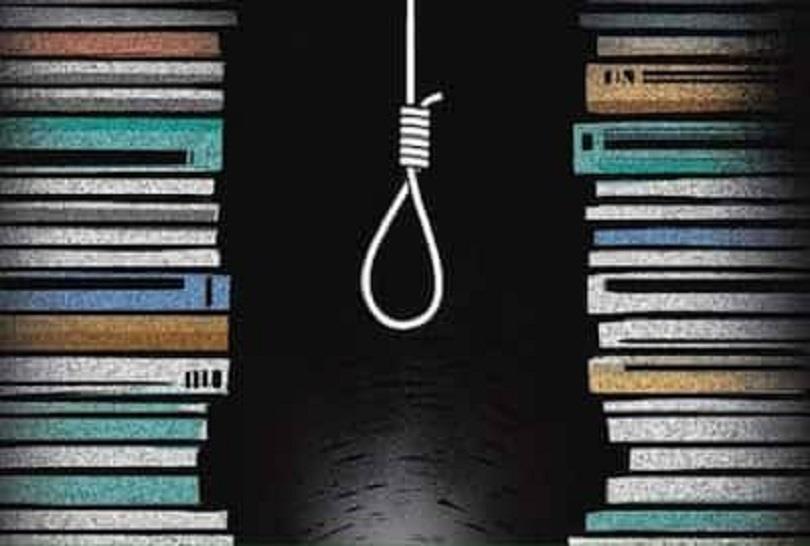
Alarming Rise Of Student Suicides: Is Indian Education To Blame?
Representational Photo
By Ummar Jamal
In recent years, we saw a disturbing trend of surge in student suicides. Since 2016 alone at least 16 Kashmiri students pursuing higher education in colleges and universities outside Jammu and Kashmir have tragically lost their lives to suicide
According to the National Crime Records Bureau (NCRB), one student took their own life every 42 minutes in 2020 in India. In the same year, 11,396 suicides of students below the age of 18 were reported across the country. The gravity of the situation is further highlighted by the Ministry of Education's report, revealing that 122 students from prestigious institutions like IITs, NITs, and central universities died by suicide over 2014-2021. Moreover, Kota, a hub for coaching centers, has seen a disturbing trend with 22 student deaths reported since 2022 and around 121 since 2011. Sadly, the toll continues to rise, with four students already having committed suicide in the year 2024.
From the pressure-cooker environment of exam preparations to the intense competition for college admissions, young minds are buckling under the weight of academic expectations. While factors contributing to this crisis are multifaceted, it's evident that the Indian education system bears a significant share of responsibility.
India's education system is notorious for its emphasis on rote memorization and high-stakes exams. From a young age, students are subjected to relentless pressure to excel academically. The pursuit of top grades becomes an all-consuming obsession, leaving little room for holistic development or personal growth.
One of the fundamental flaws of the Indian education system is its over-reliance on rote learning. Students are taught to memorize information without truly understanding its significance or relevance. This approach stifles creativity, critical thinking, and intellectual curiosity, fostering a culture of conformity rather than innovation.
Read Also No Content AvailableThe examination system in India is deeply flawed, placing an undue burden on students' mental health. Year-end board exams and entrance tests for prestigious colleges loom like dark clouds over students' lives, dictating their worth and future prospects. The fear of failure becomes paralyzing, driving some to extreme measures to escape the pressure.
The competition for admission to elite institutions in India is cutthroat. With limited seats and an ever-growing pool of applicants, students face intense competition from their peers. The relentless pursuit of perfection leaves many feeling inadequate and overwhelmed, leading to feelings of despair and hopelessness.
In Indian society, mental health issues are often stigmatized and misunderstood. Seeking help for psychological distress is viewed as a sign of weakness rather than courage. As a result, many students suffer in silence, afraid to speak out or seek support for fear of being judged or ostracized.
Parents and society at large play a significant role in perpetuating the cycle of academic pressure. Well-meaning but misguided parents often place undue expectations on their children, equating academic success with personal worth. The relentless pursuit of prestige and status fuels the obsession with top grades, leaving little room for individual interests or passions.
We must reconsider the very essence of education. Is its sole purpose to pass exams or secure employment? We must teach our children the true meaning of education. It's about nurturing curiosity, fostering critical thinking, and instilling values that go beyond mere academic achievement. Education should empower individuals to become compassionate, well-rounded citizens who can navigate life's challenges with resilience and contribute positively to society. By embracing this broader perspective, we can ensure that education serves not only as a means to a job but also as a pathway to personal growth and societal betterment.
It's clear that the Indian education system is in dire need of reform. Rather than focusing solely on academic achievement, there must be a greater emphasis on holistic development and emotional well-being. Schools should prioritize critical thinking, creativity, and problem-solving skills over rote memorization. Counseling services should be readily available to students, and mental health education should be integrated into the curriculum. This alarming trend, if ignored, will exacerbate the already dire situation.
The rise of student suicides in India is a wake-up call for policymakers, educators, and society at large. The escalating prevalence of student suicides reflects a distressing reality, yet our policymakers and legislators remain inactive. The current system is failing our youth, pushing them to the brink of despair in pursuit of an elusive notion of success
It's time to reimagine education in India, placing the well-being of students at the forefront and fostering an environment where they can thrive, both academically and emotionally. Only then can we hope to stem the tide of this tragic epidemic and build a brighter future for the next generation.
Views expressed in the article are the author's own and do not necessarily represent the editorial stance of Kashmir Observer
Ummar Jamal is a Kashmir based columnist and National General Secretary of J&K Students Association and can be reached at [email protected]

Legal Disclaimer:
MENAFN provides the information “as is” without warranty of any kind. We do not accept any responsibility or liability for the accuracy, content, images, videos, licenses, completeness, legality, or reliability of the information contained in this article. If you have any complaints or copyright issues related to this article, kindly contact the provider above.





















Comments
No comment